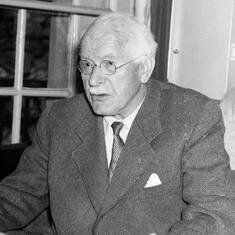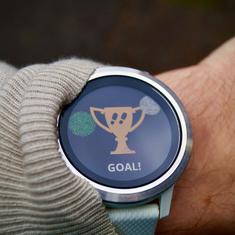I doubt I was the only person this week to sign into a long-dormant Yahoo! email account after American telecom giant Verizon bought the web portal. I jumped through the hoops – it had been so long that my login attempt registered as “unusual activity” – to get to my mailbox, only to find it empty, devoid even of spam. Instead of my early and, no doubt, cringe-worthy stabs at electronic repartee, I found nothing.
As fuzzy as those prehistoric pre-Gmail days seem, I was indignant at the deletion of an entire epoch of my internet existence. Yahoo! had hosted my first adult email account (a step up from garfield_odie45@hotmail, which my 10-year-old self thought was a marvellous advertisement of my devotion to Garfield). I was an early Gmail adopter, but that still means the history of my electronic correspondence now begins just after I graduated college in July 2004. The angsting of my teenage years, the chain forwards, the weird precursors to GIFs, the endless rumination on what-should-I-do-next: it’s all been gobbled up by the great unknown. And I’m upset.
Inbox of charm
Email often gets a bad rap. So many forwards and random newsletters, so much spam. So little of the grace and elegance of a good letter. So much more impersonal, and none of the romance of words scratched across thick stock. Whereas email discoveries sink political careers and compromise national security, the discovery of a hidden tranche of letters between two famous people (or even ordinary folks) brings deep delight to literary historians.
To top it all off, as email has aged – so rapidly, as things do in this age of Faster-than-Light technological advancement – it has lost that cachet of cool it once had, when instantaneous communication across borders and time zones still felt like magic. Now, there are all these messaging apps, your WhatsApps and Slacks, that are somehow both excitingly outre and rather pedestrian. Email has become like your wallpaper, or that comfortable chair you once loved but has since faded into the background.
But email still has its charms for those who, to paraphrase Albus Dumbledore, seek them. Email harkens back to the old days of the Web, a paean to interoperability and freedom amid the cloistered walled gardens of social networking services. And it is also a repository of our cultural history, as much as any scrap of sepia-hued parchment will ever be.
Custodian of memories
When, for instance, spooked by the vanishing of my Yahoo! emails, I went wandering through my Gmail archive, I was struck by how much I have changed and grown up. My gauche early messages were full of rows of exclamation marks, typos that had the (now former) journalist in me wincing in second-hand embarrassment, and excruciatingly detailed descriptions of every movie I’d seen (full disclosure: that hasn’t changed too much). I had a signature, an eminently silly attempt at profundity, that old chestnut about how life made you stronger. And it wasn’t just that I was a particular geek: my baby brother, a true millennial, was asking me how I got those Calvin and Hobbes quotes to appear at the bottom of my emails (he fancied himself a bit of a Calvin).
But there were also tucked-away gems about priests from Vrindavan who fiercely guard the multicultural roots of their temples, cute emoji-laden greetings from my little brother, and photo albums from relatives. There are quaint references to network trouble, dial-in difficulties and approaching internet time-use limits. Orkut notifications pop up like remnants of Facebooks past, and there’s orders from the Indian precursor to Flipkart (firstandsecond.com).
Our emails are custodians of our memories in a way that Facebook cannot be, mostly because it has room for the variety of human interaction that cannot penetrate the well-guarded silos we prize about Facebook. It doesn’t impose the tyranny of a blue double checkmark, or the three dots, to necessitate a response. You are still in control of when, if ever, you want to acknowledge an “I’m sorry I was such a four-letter-word five years ago!” mail from your ex. It is still the simplest way to have a conversation with five different people (ask anyone who has ever suffered through a conference call).
So email as a service will probably endure, past Yahoo!, perhaps past Gmail, and even past the so-called Snapchat generation. I just wish that my email history had survived as well.










